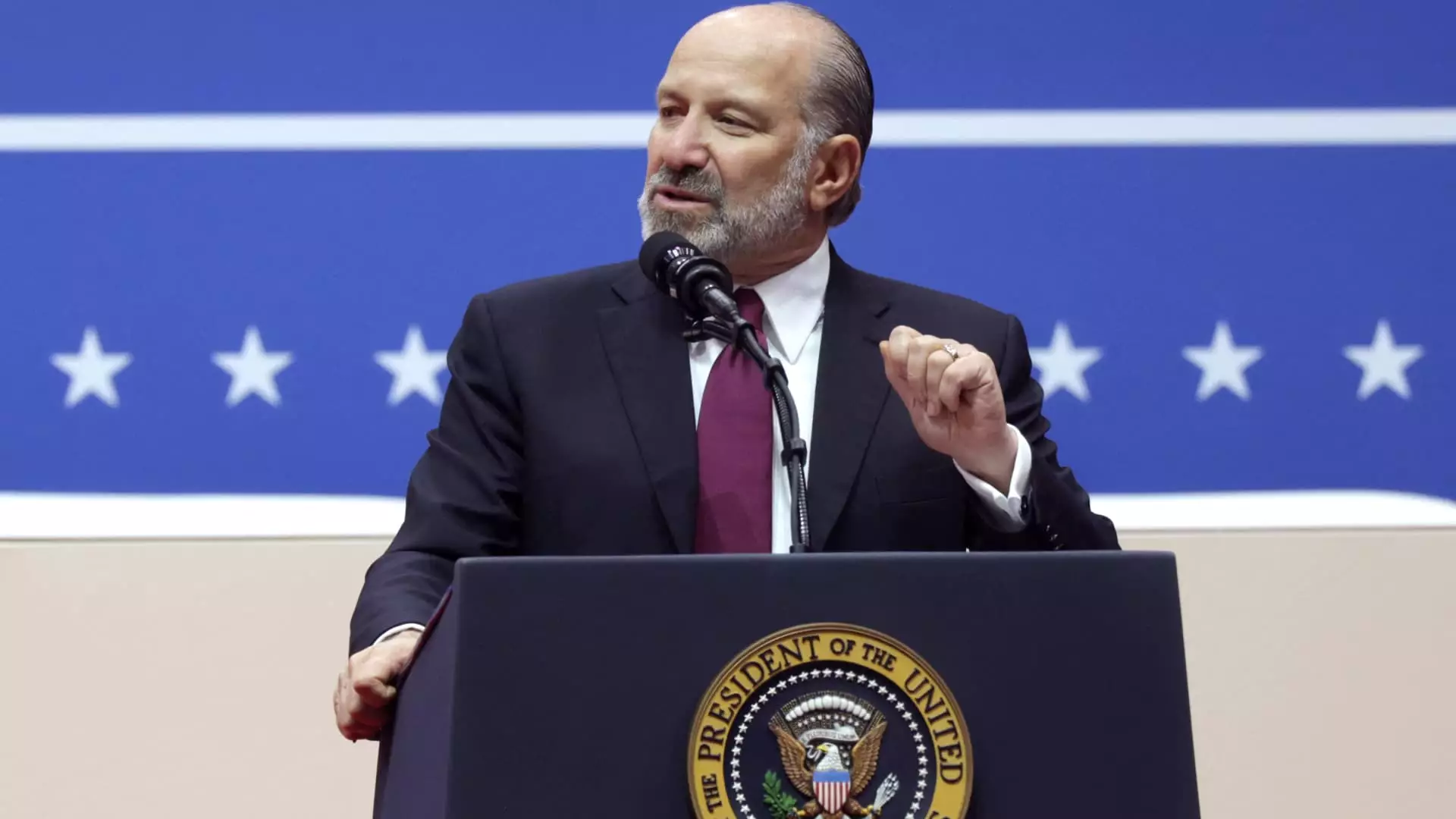In an increasingly volatile economic landscape, the recent remarks by Commerce Secretary Howard Lutnick on ABC News have exposed a chilling reality about the future of technology imports in America. Despite initial tariff exemptions for electronics, which appeared to offer a glimmer of hope to tech companies, it seems this short-lived respite is merely a prelude to a harsher economic climate. With assertions that separate tariffs for key products such as laptops, smartphones, and televisions are “coming soon,” Lutnick’s comments unveil a looming strategy aimed at further isolating the American economy from its global counterparts.
The Rhetoric of National Security
Lutnick framed the conversation around the necessity of elevating domestic manufacturing, boldly declaring that the U.S. “can’t be beholden” to foreign nations for essential products. Yet, this rhetoric raises skepticism. What does it truly mean to prioritize “national security” in the context of consumer electronics? The argument for fostering domestic production is laced with an undercurrent of economic nationalism that poses risks of stifling innovation and stunting competition. While the idea of manufacturing surge sounds noble in theory, it fails to acknowledge the intricate web of interconnected global supply chains that fuel the tech industry. The push for “America First” could push the economy backward instead of propelling it forward.
Consumer Consequences and Corporate Response
Such tariff policies ultimately burden everyday consumers. By elevating taxes on imports, prices for popular tech gadgets will inevitably soar. Companies like Apple are already grappling with the implications of fluctuating tariffs and the uncertainty they bring. In a market that thrives on consumer choice and reasonable pricing, these tariffs could translate into less accessibility and increased frustration among tech-savvy individuals and families. As manufacturers pass on increased costs, the ramifications could dampen consumer spending and overall economic growth.
The Political Fallout of Tariff Muddles
Senator Cory Booker has rightly pointed out the credibility crisis facing President Trump amid these chaotic tariff decisions. The lack of coherent messaging has turned the administration’s trade policy into a baffling maze for both businesses and consumers alike. This inconsistency is far from conducive to fostering global partnerships, which are crucial not only for economic prosperity but also for international cooperation on pressing challenges. When nations are left uncertain about America’s trade stance, they are likely to pull back on collaboration, undermining collective progress across various sectors.
The Dangerous Pursuit of Economic Isolation
The consequences of Trump’s escalating tariff threats extend beyond fleeting financial implications; they represent a dangerous shift towards economic isolationism. While it might please the political base to prioritize local manufacturing over international trade, it alienates the U.S. from vital economic partnerships, stifles innovation, and ultimately threatens long-term economic viability.
To navigate a path toward prosperity, the U.S. must engage in thoughtful dialogue, embracing global interdependence rather than retreating into a shell of economic self-sufficiency. The current trend fosters not only confusion but also resentment on the global stage, as America risks losing its competitive edge in an increasingly interconnected world.


Leave a Reply